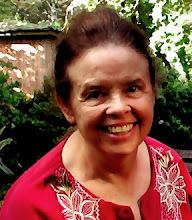

“Isn’t the Peace Corps just for college kids?” folks often ask. When, at age 62, I left for the Peace Corps in Honduras, a male friend solemnly warned, “That’s just crazy at your age. Mark my words, you’ll be home by Christmas at the latest.” Actually, Peace Corps has no upper age limit—a woman 86 is now serving in Morocco—and, no, I didn’t come home by Christmas. I extended my time beyond the usual 27 months and ended up staying for three Christmases!
About 8% of current volunteers are over 50 and Peace Corps Director Aaron Williams hopes to increase their numbers. Experienced volunteers have more skills to offer, enjoy greater respect overseas, and seem less vulnerable to homesickness. They may, however, have more health problems and difficulty mastering a new language than younger folks. So, a mix of ages seems to work best, with less limber volunteers like me cheering on younger colleagues playing pick-up soccer with local kids. In Honduras, those of us with more life experience acted as informal mentors to our younger colleagues, a point driven home to me during my recent talk at the New York Public Library, attended by several former fellow Honduras volunteers. One recalled going to Honduras only days after graduating from college, never having been beyond New York State, thanking me for serving as an example and a guide. In Honduras, I also spearheaded the formation of a support group for over-50 volunteers, OAKS, standing for Older And Knowing Souls.
Peace Corps accommodates certain health conditions. I’ve known volunteers with diabetes who had insulin regularly delivered, also some who’ve been blind, deaf, or physically disabled. It depends on a particular country’s needs, say, for a sign language instructor who also serves as a role model. The only absolutely disqualifying factor is prior intelligence service to avoid any suspicion that volunteers might be covert CIA agents or engaged in spying.
Federal employees get two years’ credit toward retirement for volunteering, returning at their same grade level, though not necessarily to their previous position. Two friends in my own neighborhood took advantage of this provision and are back again working for the federal government. Married couples serve together, but in different areas, for example, one spouse working in agriculture while the other teaches English. Director Williams is now exploring whether same-sex married couples can serve safely in certain countries (not Honduras!). He also has extended short-term Peace Corps Response assignments, usually three to twelve months, to professionally qualified volunteers without previous Peace Corps experience and is partnering with another organization to send one-year medical missions to Africa. Participants in these programs must be ready to hit the ground running, needing little language instruction or other orientation.
![45. With Neris, greeting card collector, Triunfo[1]](http://putoldonholdjournal.com/journal/wp-content/uploads/2012/07/45.-With-Neris-greeting-card-collector-Triunfo1-300x205.jpg)
My own Peace Corps dream began in 1961 when President Kennedy first announced the corps’ formation. Family circumstances prevented me from going right then, but I’d always dreamed of joining “some day.” Then in 1994, my oldest son died suddenly after a work accident, dealing me a blow from which I will never completely recover. The next year, a Cuban foster son died of AIDS. Their premature deaths devastated me, temporarily pushing aside any Peace Corps aspirations. But their deaths also proved a catalyst, propelling me to no longer defer my dream. Peace Corps service turned out to offer me a healing experience.
After my return from 3 ½ years in Honduras, I experienced severe reverse culture shock—who needs flush toilets, hot showers, and 30 kinds of salad dressing? I’d learned to have a small carbon footprint and still don’t own a car or TV set. At age 66, I started a brand new people-friendly career, something I’m still doing now at age 74, as an on-call Spanish hospital and school interpreter. I also wrote a memoir that’s won several literary prizes, including “Best Peace Corps Memoir of 2009” from Peace Corps Writers. Proceeds from my book, Triumph & Hope: Golden Years with the Peace Corps in Honduras, help support my health and education projects in Honduras, where I go annually, eight times so far, most recently last February. The title is a tribute to the two towns where I served, El Triunfo (The Triumph) and La Esperanza (The Hope). In my book, I emphasize Peace Corps’ challenges as well as its rewards. Readers have told me the book helped them to stay the course during their own rough spots during service.
If Peace Corps is on your own to-do or bucket list, don’t procrastinate. The golf course and bridge table can always wait. If not Peace Corps, then try shorter overseas service with a sister city, church group, or medical brigade. You won’t regret it; you’ll regret much more not doing it when you had the chance.
================================================
Barbara E. Joe, MA, is a Boston native, alumna of the University of California, Berkeley, and a mother, grandmother, and great-grandmother. She works in Washington, DC, as a freelance writer, Spanish interpreter, and translator. From 2000-20003, she served as a Peace Corps health volunteer and wrote an award-winning memoir, Triumph & Hope: Golden Years with the Peace Corps in Honduras.
For more information about Peace Corps, see http://www.peacecorps.gov/
Barbara’s book: Triumph & Hope: Golden Years with the Peace Corps in Honduras (available on Amazon.com and Kindle and the Nook)
Blog: http://honduraspeacecorps.blogspot.com

Leave a Reply